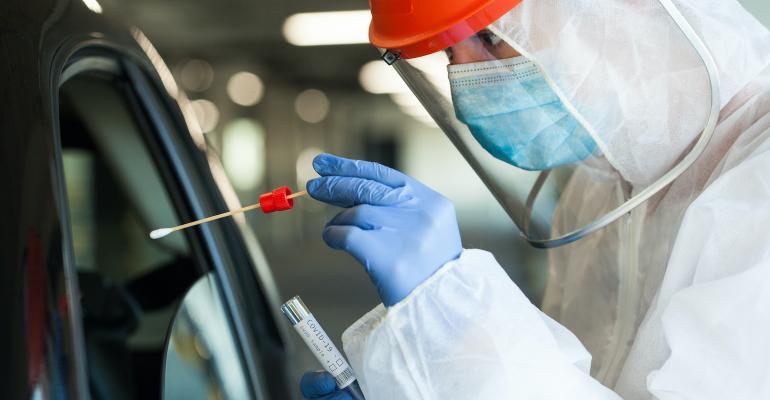With the pandemic, the public and stakeholders have to realise that infections are no longer contained within hospital boundaries, said panellists on the second day of the three-day Patient Safety Virtual 2021 conference that started on Thursday.
At the session titled “IPC in outbreaks – lessons learned” and moderated by Dr Maria Fernanda Bonilla, Staff Physician, Medical Subspecialties Institute, Cleveland Clinic Abu Dhabi, the panellists said that only by practicing proper infection control strategies could infections be controlled in the future.
Prof Tawfik A. M. Khoja, Prof of Public Health, Imperial College London; Family and Community said: “Among the lessons learnt from Covid-19, we understand that quality and patient safety roles have become diverse, multi-sectorial and multi-disciplinary and involve a lot of people from within and outside the healthcare industry.”
In 2010, the World Health Organisation (WHO) asked all countries to develop a national programme for infection and control. Studies show that in Europe there are nine million patients with infections acquired during their stay in hospitals while seven to 15 percent patients had infection problems in high and middle income countries, he said.
Other WHO studies done in the Arab region also show that 12-18 per cent of patients have hospital acquired infections. In babies born in low and middle income countries, the rate of infection is almost 20 times higher than any developed and high income countries.
“In the pandemic the issue became complicated because several countries in the Arab region have high prevalence rates. Secondly there are many unsafe practices within healthcare institutes. Lastly, the healthcare teams, too are infected. But now it is evident that with low cost interventions we can minimise such infections,” added Prof Khoja.
The cost and economic impact of hospital acquired infections is huge. In the US alone, $30 billion is spent per year while in Australia, 12-16 per cent of the expenditure goes into managing infection control in hospitals.
Prof Souha S. Kanj, Professor of Medicine, Head, Division of Infectious Diseases, Department of Internal Medicine, Chair, Infection Control and Prevention Programme; Co-Director, Antimicrobial Stewardship Programme; American University of Beirut Medical Center, Beirut, Lebanon said: “More than ever we have learnt about infection control practices during the Covid pandemic.
For people who did not think that infection control practices were important, now are totally convinced that these practices are a must. But we cannot talk about practices without stressing on the importance of proper hand hygiene, as well as precautions about transmission processes.”
Education is part of the Infection Prevention and Control (IPC) mandate and it is not only to put policies and procedure in place. “In regions such as Lebanon and Italy where there were shortages of masks and PPEs, we came up with re-sterilization processes for N95 masks and googles. Also, the work of the IPC is to manage outbreaks just as they did in Covid 19.”
Dr Amal Saif Al-Maani, Director, Central Department for Infection Prevention and Control, Ministry of Health, Muscat, Oman said: “The public and decision makers have to realise that infection control is not within the hospital walls only now. We engaged the public during Covid-19 with all the infection and prevention control strategies and the public has been wearing masks to halt the spread of the infection as well as practicing hand hygiene during the pandemic.”
Engaging the public during the pandemic through proper risk communication of what it means to be infected and their compliance can also be done for all other infectious diseases, including the healthcare associated infections.
“For a long time we have been treating hospital acquired infections as a stigma for the society and as something that is pinpointing a bad practice at the facility, but if you look in reality, many of those are preventable,” said Dr Al-Maani.
Community stake holders including workplace leaders were interested in buying strategies to control infection because of loss of lives, time and money during the pandemic.
“Why can’t we do this for all respiratory diseases? If we take the pandemic as any other outbreak and as an opportunity to enforce strategies of infection prevention control in the day to day practices of individuals while reminding them of Covid while it is still fresh in their minds, we will be in a better shape to sustain infection control for the future,” she concluded.

